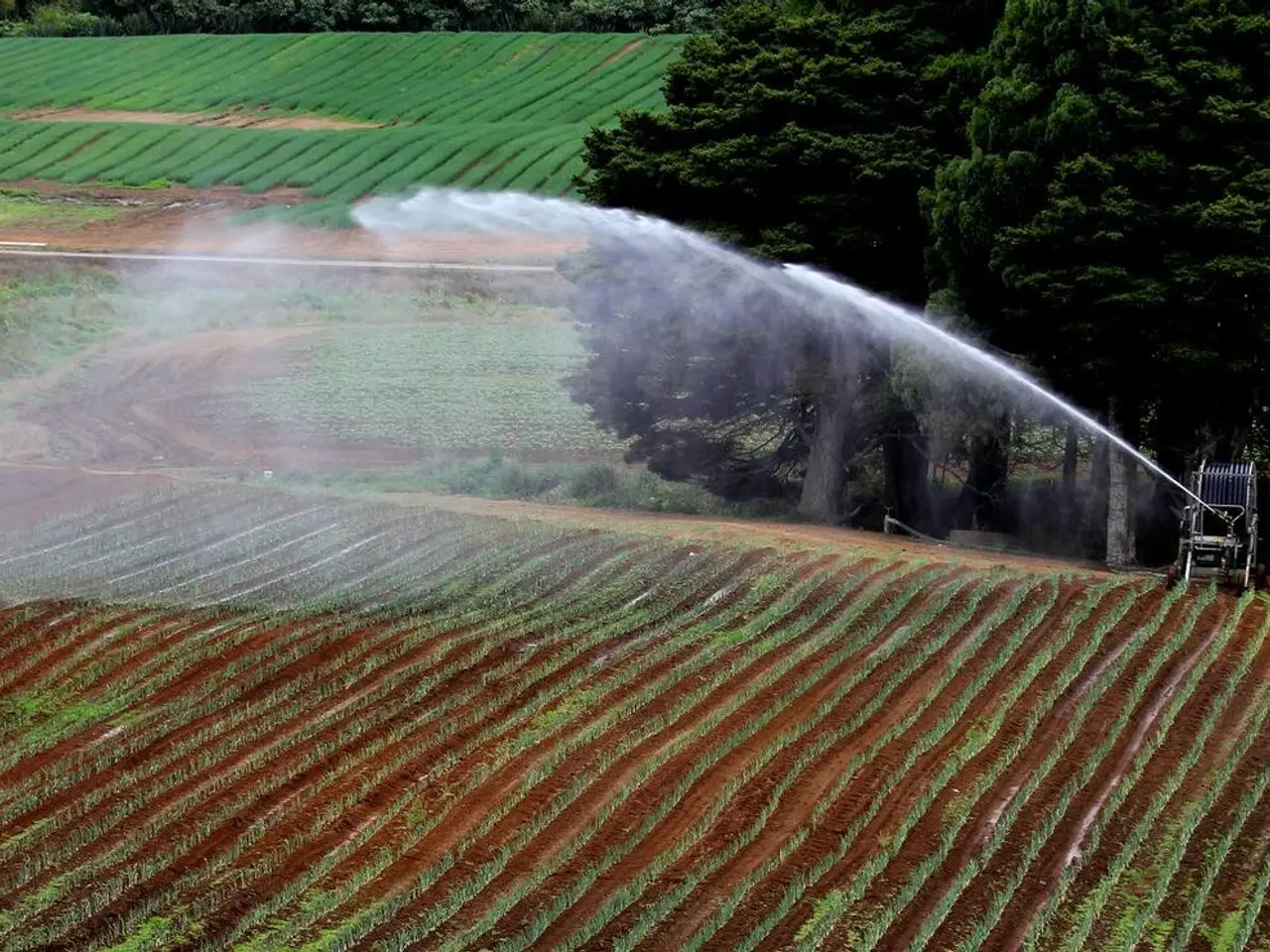Uncovering the Solution: Hydroponics Farming and Its Role in Overcoming Sustainability Issues
In the bustling city of Chennai, innovative farming practices are taking root, transforming the urban landscape and contributing to sustainable food production. One such method is hydroponics, a soil-less, water-efficient agriculture system that overcomes local resource constraints such as limited arable land and water scarcity.
Hydroponics offers several advantages in addressing sustainability challenges in agriculture. By employing innovative techniques like hydroponics, Chennai can ensure food security for future generations while protecting resources. Future Farms and Way2Grow are among the suppliers and builders of hydroponic equipment in Chennai, providing the necessary tools for this sustainable farming revolution.
Key ways hydroponics in Chennai promote sustainability and resource efficiency include water conservation, space efficiency, climate resilience, reduced chemical use, and economic and social benefits.
Water conservation is a crucial aspect of hydroponic farming, with systems recirculating nutrient-rich water, drastically reducing water consumption compared to soil farming. This is particularly important in Chennai's water-scarce environment.
Space efficiency is another significant advantage, as hydroponics can be set up vertically or on rooftops, making use of limited urban spaces. This helps produce more food locally and reduces reliance on rural supply chains.
Climate resilience is another key benefit, as controlled environment farming protects crops from extreme heat, irregular rainfall, and pests, addressing vulnerabilities caused by climate change affecting traditional farming in the region.
Reduced chemical use is another advantage, with hydroponic and aquaponic systems minimizing or eliminating pesticide use, supporting healthier produce with lower environmental impact.
Economic and social benefits are also apparent, as these tech-driven methods create new green jobs and skill development opportunities, empowering urban farmers and supporting food security initiatives aligned with India's sustainability goals.
Hydroponics enables year-round production, reducing reliance on seasonal harvests and imports. However, expertise is needed to manage the nutrient solutions and controlled environment in hydroponic systems. Online searches for "hydroponic vertical farming in Chennai" can help find local resources.
While hydroponics offers a promising future for sustainable agriculture, initial setup costs can be higher than traditional farming. Farmland selling companies like Getfarms can be found for hydroponic farming in Chennai. Several companies in Chennai offer hydroponic farm setup services.
Hydroponics is not a one-size-fits-all solution, with different methods like Nutrient Film Technique (NFT), Deep Water Culture (DWC), and Aeroponics available. Minimized pesticide use in hydroponic systems leads to safer food and a healthier environment, giving consumers peace of mind knowing their food is free from harmful residues.
In conclusion, hydroponic farming in Chennai is a promising solution for sustainable urban food production, offering climate-resilient, water-efficient, and space-efficient agriculture. As the city continues to grow, embracing innovative techniques like hydroponics can help ensure food security, protect resources, and promote a greener, more sustainable future.
[1] Sustainable Urban Agriculture: A Review of Hydroponic Techniques and Their Potential for Urban Food Production. (2020). Journal of Sustainable Agriculture.
[2] Hydroponics for Urban Agriculture: A Review of Current Status, Challenges, and Opportunities. (2019). Journal of Cleaner Production.
[3] Hydroponic Urban Farming: A Sustainable Solution for Chennai's Food Security. (2021). The Hindu.
[4] Technologies for Sustainable Urban Agriculture: A Review of Hydroponic Systems and Their Potential for Chennai's Food Security. (2020). International Journal of Environmental Science and Technology.








